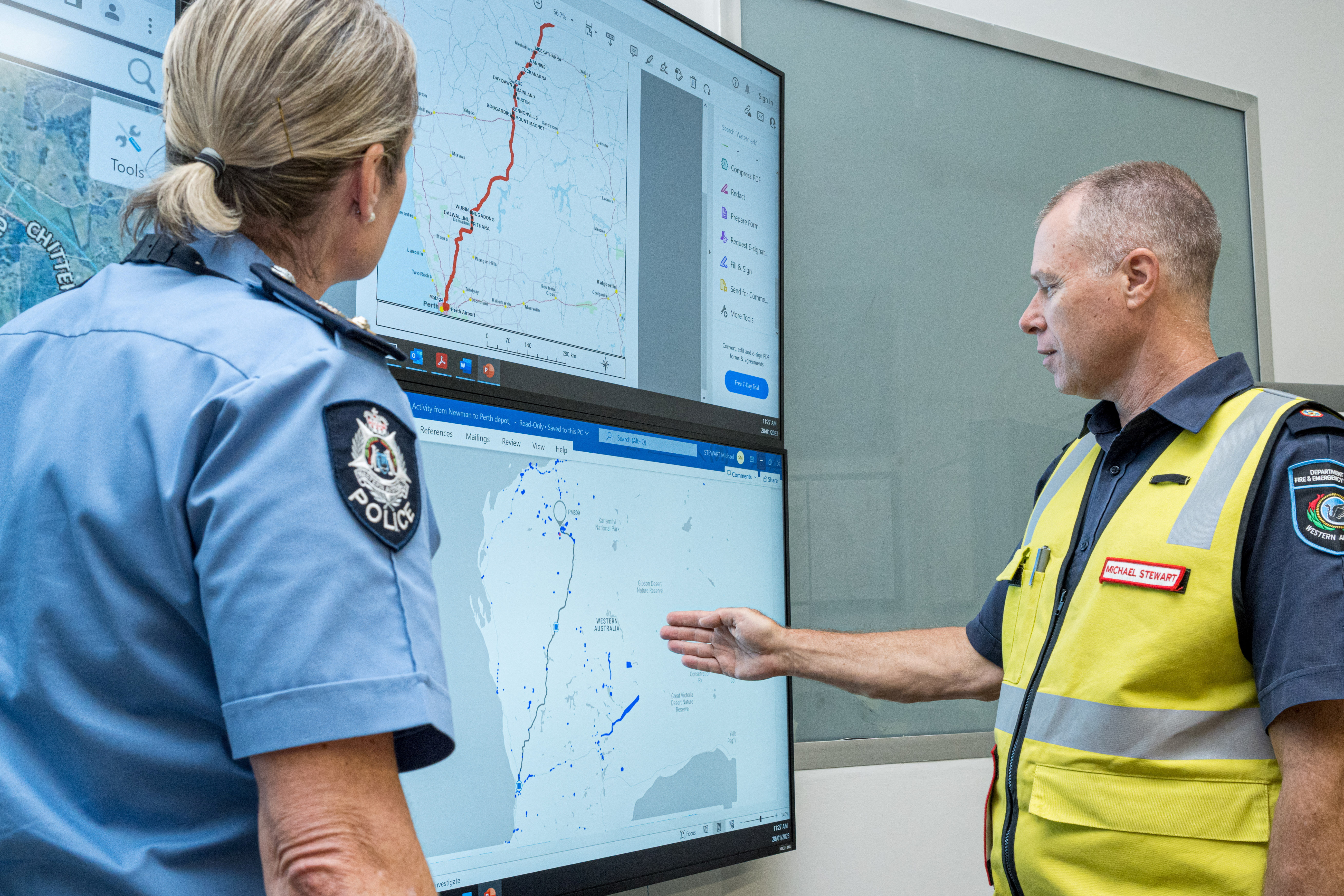
Australian authorities on Wednesday found a radioactive capsule that was lost in the vast Outback after nearly a week-long search along a 1,400 km (870-mile) stretch of highway, an emergency services official said.
The military was verifying the capsule and it would be taken to a secure facility in the city of Perth on Thursday, Emergency Services Minister Stephen Dawson said in a news conference.
“When you consider the scope of the research area, locating this object was a monumental challenge, the search groups have quite literally found the needle in the haystack,” Dawson said.
The radioactive capsule was part of a gauge used to measure the density of iron ore feed from Rio Tinto’s (RIO.AX) Gudai-Darri mine in the state’s remote Kimberley region. The ore was being taken to a facility in the suburbs of Perth – a distance longer than the length of Great Britain.
Officials from Western Australia’s emergency response department, defence authorities, radiation specialists and others have been combing the a stretch of highway for the tiny capsule that was lost in transit more than two weeks ago. read more
Officials said the capsule apparently fell off a truck and landed on the side of the road, adding that it was
unlikely there will be contamination in the area.
The silver capsule, 6 mm in diameter and 8 mm long, contains Caesium-137 which emits radiation equal to 10 X-rays per hour.
People had been told to stay at least five metres (16.5 feet) away from the capsule if they spot it as exposure could cause radiation burns or radiation sickness, though driving past it is believed to be relatively low risk, akin to taking an X-ray.

